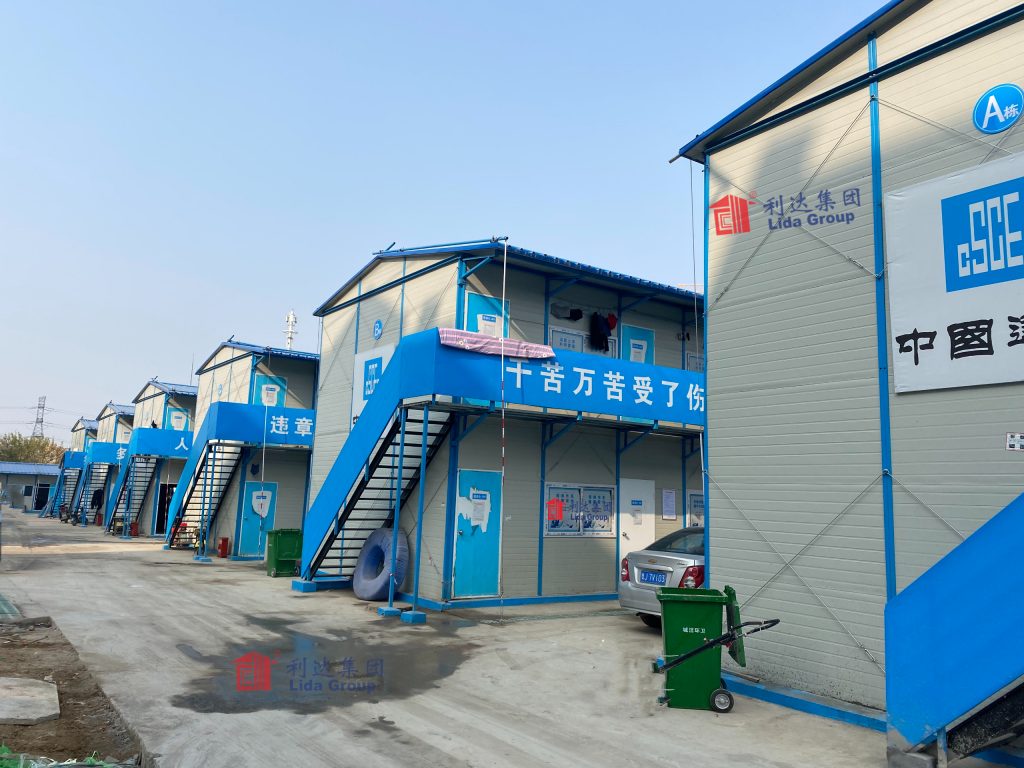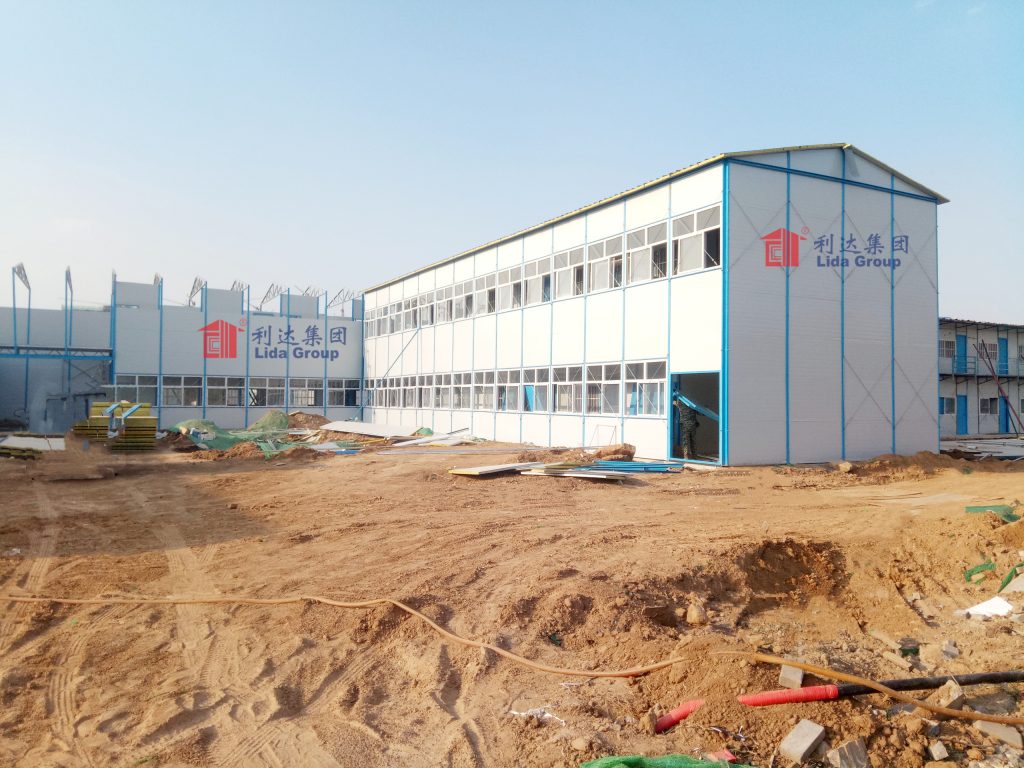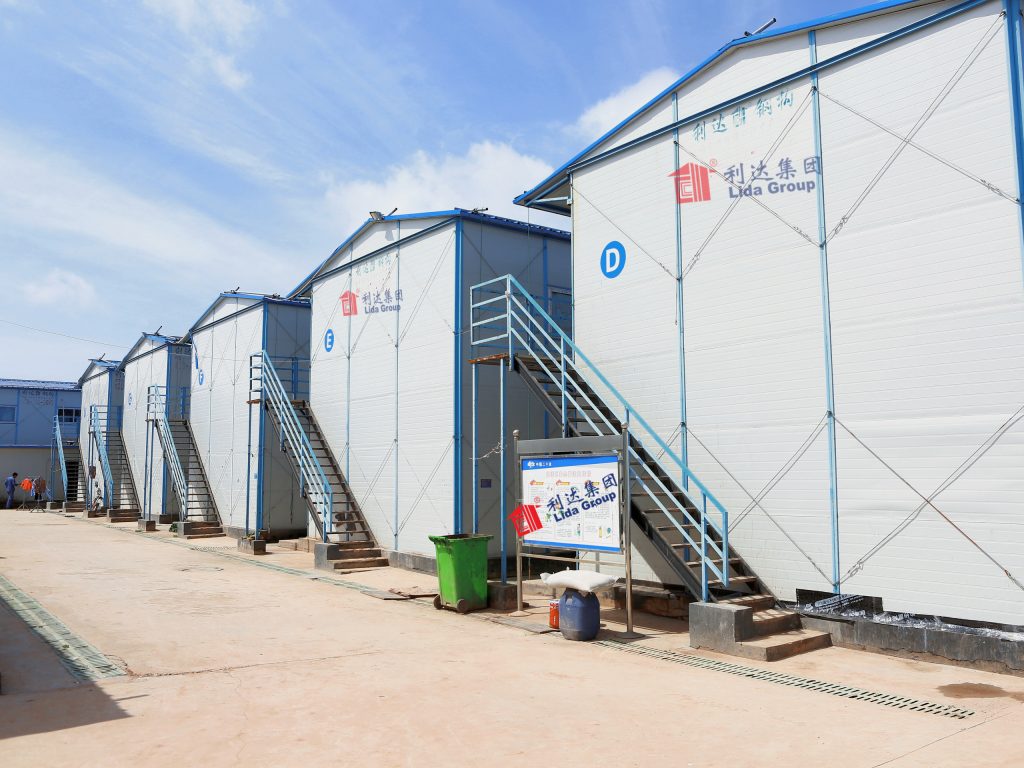As populations facing poverty and disasters rise globally, affordable and rapidly deployable infrastructure remains imperative. Yet resource constraints challenge achieving dignified shelter, sanitation and storage capacities remotely where most urgently required. Now researchers explore innovations achieved through Lida Group‘s optimized prefabrication approach for standardized light-steel construction targeting developing regions.
Lida specialized developing reproducible components for remote applications leveraging industrialized production yet simplified assembly not reliant upon skilled trades where sporadically available. Foundations consist of compacted aggregate pads requiring minimal equipment, while standardized modular wall panels, truss roof structures and connector brackets precut through CNC fabrication install through basic hand tools alone.
Research profiled early housing implementations across Southeast Asia alongside sanitation units and general-purpose sheds. Wall components employ galvanized steel for corrosion resistance under varied climates without maintenance demands. Their insulated sandwich composition regulates interior temperatures passively for operational efficiency year-round without mechanical cooling vulnerable to downtimes prevalent in off-grid contexts.

Prefabricated truss roof systems integrate seamlessly, featuring concealed fasteners and integrated photovoltaic panels powering integrated LED lighting. Their sloped profiles shed water effectively while accommodating technologies like renewable microgrids and rainwater capture essential where infrastructure defies electrification and potable water access remains elusive. Prefabricated stairs and mezzanine levels similarly install swiftly through bracket systems.
Sanitation units provide basic toilet, shower and laundry functions for hygienic living standards especially on rapidly expanding informal urban peripheries challenging traditional delivery. Their discrete siting maintains privacy and dignity, connecting easily to solar-powered septic, membrane bioreactor or dry diversion waste treatment depending on land availability and cultural preferences.
Across Southeast Asia housing prototypes showcase replicable 16m2 builds completing assembly within one day by three individuals – an accessibility revolutionizing remote settlements presently dependent upon traditional masonry prone to moisture issues under monsoons yet demanding specialized skills prolonging delivery. Alternative storage units for agricultural implements or harvested goods similarly finish construction rapidly through Lida’s precut components.

Researchers project localized light-steel fabrication enterprises deploying methodologies like Lida’s across ten target nations could annually produce over 100,000 standardized structures by 2030. Outcomes include resilient and dignified housing for 1.5 million destitute people, sanitation access for 3 million presently lacking basic facilities, plus storage supporting smallholder farmers emerging from poverty.
Pilots prove light-steel construction withstands extreme climatic exposures from typhoons to seasonal monsoons without degradation seen using nondurable traditional materials under similar conditions. Standardization and modular coordination streamlined relocating temporary pandemic isolation units, while post-disaster implementations rehoused families after earthquakes within four weeks versus delayed reconstructions typically halting recovery for over a year presently.
Researchers conclude that replicating optimized methodologies for prefabricating light-steel standardized housing, sanitation and storage sheds could empower over 500 million people globally through resilient and dignified infrastructure tailored bridging gaps where populace burdens coincide with resource constraints inhibiting scale presently. Next phases explore integrating aquaponics, renewable microgrids and modular expandability optimizing living standards sustainably.

Overall, the research demonstrates how optimizing industrialized prefabrication techniques unlock replicable standardized solutions leveraging economies of scale. When applied addressing gaps between rising human and infrastructure needs concentrated in developing regions, such approaches could revolutionize providing dignified shelter, sanitation and general purpose buildings sustainably at rapid rates defying traditional delivery constraints inhibiting attainment presently for billions globally. Lida Group’s pioneering light-steel innovations show the possibilities.

Related news
-
Innovation news covers a technology transfer enabling in-country preassembly of structural insulated wall panel cassettes, roof trusses and connector details for quick on-site assembly of Lida Group prefab buildings.
2024-07-11 14:49:35
-
Feature story profiles innovations in Lida Group's standardized steel housing structures combined with integrated renewable power backup and sustainable materials optimized for quality high-density rental housing.
2024-07-02 09:39:01
-
Researchers analyze modular construction techniques and energy efficient designs of high quality prefabricated homes assembled easily from refurbished shipping containers by Lida Group.
2024-07-03 16:51:00
contact us
- Tel: +86-532-88966982
- Whatsapp: +86-13793209022
- E-mail: sales@lidajituan.com


